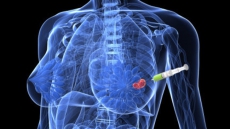Schizophrenia and bipolar disorder appear to be linked with dendritic spine loss in the brain, suggesting the two disorders may share common pathophysiological elements.
Previous studies observed spine loss in the dorsolateral prefrontal cortices (DLPFCs) from individuals with schizophrenia (SZ).
"The current study suggests that spine pathology is common to both SZ (schizophrenia) and BP (bipolar disorder)," said study author Glenn Konopaske from McLean Hospital in Belmont, Massachusetts, who teamed up for the study with colleagues from Harvard Medical School, Boston.
In a bid to determine whether spine pathology happens in individuals with a disorder distinct from schizophrenia, the team included patients with bipolar (BP) disorder in their study.
For the study, the authors analysed post-mortem human brain tissue from 14 individuals with SZ, nine individuals with BP and 19 unaffected control group individuals.
In individuals with BP, the average spine density was reduced (by 10.5 percent) and in individuals with SZ (by 6.5 percent) compared with control patients, the team found.
There was also a significant reduction in the average number of spines per dendrite in both individuals with SZ (72.8 spines per dendrite) and individuals with BP (68.9 spines per dendrite) compared with control group individuals (92.8 spines per dendrite).
The study of the mechanisms underlying the spine pathology might reveal additional similarities and differences between the two disorders, which could lead to the development of novel biomarkers and therapeutics, the researchers concluded.
The study appeared online in the journal JAMA Psychiatry.





